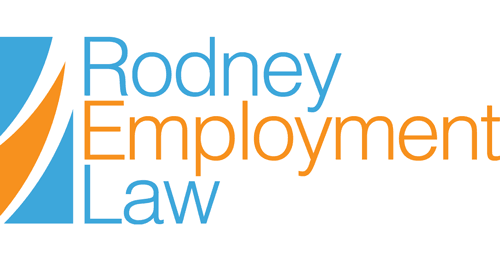Delta Staffing Services came under fire recently when they posted a job ad stating male employees would receive higher compensation than their female counterparts, CityNews reports. As well, for a similar posting, Delta noted they were preferably looking for those of Asian and European cultures. Pay equity (equal pay for male jobs and female jobs), as well as employment equity (equal opportunity for all in the hiring process), were not shown by Delta, further demonstrating the struggle to have all employers be equitable in the hiring process.
This incident is yet another example of discrimination playing a part in the hiring process. And while the latter Delta example is essentially asking for minority workers, a recent HBS study shows that candidates belonging to a visible minority are more likely to be offered interviews (and hired) if they “whiten” their resumes, Forbes reports. This “whitening” includes, but is not limited to, removing notable achievements if they were awarded by a culture-based organization, as well as changing one’s name to “sound white.”
It is an employer’s duty to be unbiased in the hiring process. As stated in the Ontario Human Rights Code, “employers cannot discriminate on prohibited grounds.” This means an employer cannot discriminate against a current or prospective employee based on appearance, sexual orientation, ethnic background, etc.
A good rule of thumb for employers during the interview stage is to not ask about any of the following topics:
- Race
- Ancestry and ethnic origin
- Nationality
- Citizenship
- Religion
- Sexual orientation
- Age (under 18 and over 65)
- Marital status
- Family status
- Gender identity
It is also the duty of a prospective employee to be truthful on any resume or application. However, the proof is there that a majority of employers will be more likely to offer an interview to someone who seems “white” based off of only their resume.
There is no quick fix to this problem. While it sounds easy to tell employers to be unbiased, and to tell candidates to be honest, history shows us that those two ideas will never be followed by everyone. However, by making an effort to stick to these ideas of honesty and being unbiased, employers and candidates alike can impact, and decrease, the prevalence of discriminatory job ads.
When creating a job ad, be sure to ask yourself these questions:
- Am I asking for applicants of a certain gender?
- Am I asking for applicants of a certain ethnic background?
- Do I require applicants to speak a certain language that has zero relation to the job itself?
- Does my ad ask for applicants above or below a certain age?
If you answered yes to any of the above questions, there is a good chance your ad is discriminatory in one way or another, regardless of how you intended it to be. The best way to avoid having any issues when posting an ad, or interviewing an applicant, is to stick solely to questions related to the job itself like asking them about past experiences and finding out if they will be able to perform adequately in the position. As well, to help ensure you are not being discriminatory when hiring, it is important to train hiring managers to avoid asking discriminatory questions during interviews.
As an applicant, be sure to ask yourself these questions:
- Am I omitting any important information from my resume because it associates me with a certain ethnicity/cultural group?
- Am I using a nickname rather than my legal name for the sake of appearing to be from the country/region the job is located?
- Is there anything on my application to purposefully gives away, or hides my ethnicity/background?
If you answered yes to any of the above questions, you may fit in with those mentioned in the HBS study linked above who “whitened” or altered their application to appear as someone they are not. In the long-run, it will be more beneficial to you to stay honest in applications. Even though “whitening” a resume may yield more interviews, if the interviewer is, unfortunately, biased, it will make no difference to them if you altered your resume once they meet with you in person.
It is ignorant to assume someone’s ethnicity based on a written application alone, yet there exist employers who do this on a regular basis. Employers in Ontario are legally obligated to offer equal pay for equal work (according to the Employment Standards Act, 2000), as well as ensuring pay equity by applying a gender-neutral view to all jobs within the organization (according to the Pay Equity Act, 1990).
Employers ought to be mindful of the legal implications associated with discriminatory job ads. Discriminatory job ads put you under violation of the Human Rights Code, and an affected party might choose to file a claim through the Human Rights Tribunal of Ontario under the Human Rights Code.
Beyond the legal implications, posting a discriminatory job ad can have a serious, negative implication on an employer’s reputation. Most applicants will not want to work for an employer with a history of discriminatory practices, and existing employees may be discouraged by the negative impact on their employer/company’s reputation.
Delta Staffing Services is a perfect example of how a business’ reputation can plummet as a result of discriminatory hiring practices. It is much easier to be proactive and ensure your company will not come under fire than to try to repair the damage once it is done.
If you are unsure as to whether or not you have engaged in unethical hiring practices as an employer, or feel you have been an individual victim of discrimination in the hiring process or on the job, we are here to help. Contact us today.
